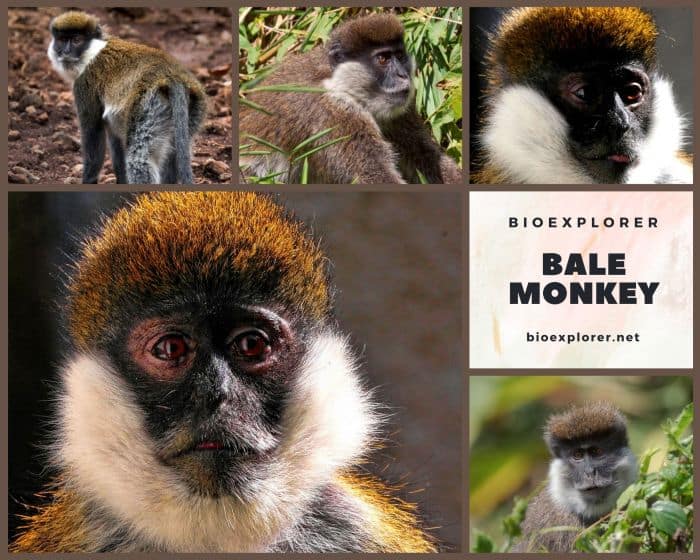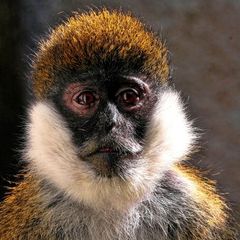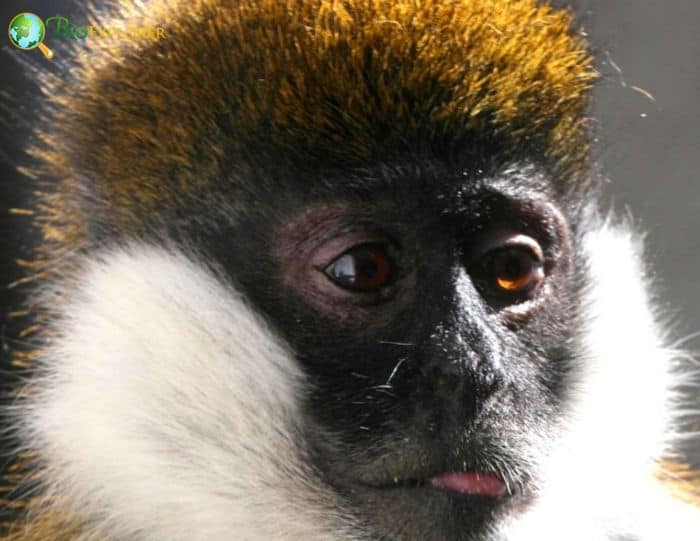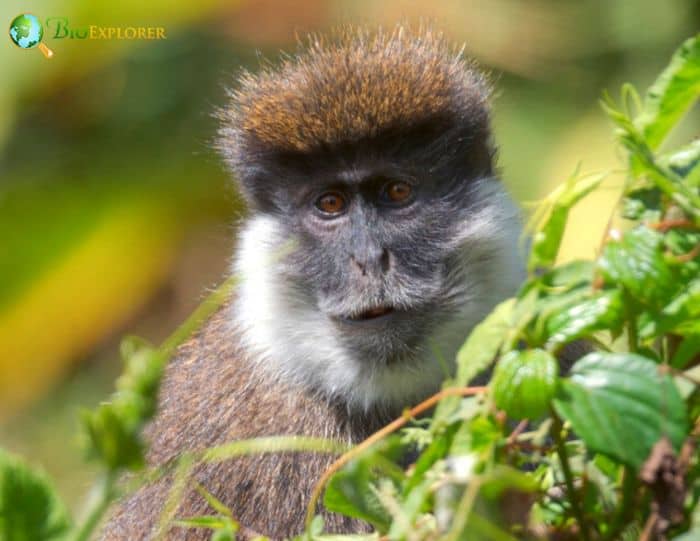
| Animalia | Primates | Cercopithecidae | Chlorocebus | Chlorocebus djamdjamensis |


- Common Name: Bale Monkey
- Taxonomy Classification Year: 1902
- Monkey Size: 43 to 48.2 cm (17 to 19 inches)
- Skin Color(s): Dark brown
- Habitat: Bamboo forests
- Diet: Herbivorous
- Native Countries: Ethiopia
Bale Monkey Distribution
Bale Monkey Characteristics

The Bale monkey[1], also called the Bale Mountain Vervet, is an endangered, forest-dwelling arboreal primate restricted to a small range in the southern highlands of Ethiopia,
- The bale monkey depends primarily on a single species of bamboo (Arundinaria Alpina) and favors a bamboo forest habitat.
- These African primates feature small round heads, and their bodies are covered with a layer of dark-brown fur.
- In addition, the abdomen, or lower region, of a male of this species is draped in blue fur.
- A unique physical feature of Bale Monkeys is that they have cheek pouches that can be filled with food to be consumed later.
Bale Monkey Facts

- They are the least known primates in Africa, having only been discovered in 1902.
- Bale Mountain vervet monkeys feed primarily on bamboo, usually African alpine bamboo.
- Their behavior towards humans is quite shy, and they tend to run away when someone encounters them.
- They are socially active creatures as they form a large group, usually male-dominated, and talk to each other through various calls.
- They are considered a group of endangered creatures according to the Red List of the IUCN. They owe this endangered status to hunting and habitat loss.
Suggested Reading: Different Breed of Monkeys
Cite This Page
APA7MLA8Chicago
BioExplorer.net. (2025, April 14). Bale Monkey. Bio Explorer. https://www.bioexplorer.net/animals/mammals/monkeys/bale-monkey/.
BioExplorer.net. "Bale Monkey" Bio Explorer, 14 April 2025, https://www.bioexplorer.net/animals/mammals/monkeys/bale-monkey/.
BioExplorer.net. "Bale Monkey" Bio Explorer, April 14 2025. https://www.bioexplorer.net/animals/mammals/monkeys/bale-monkey/.










